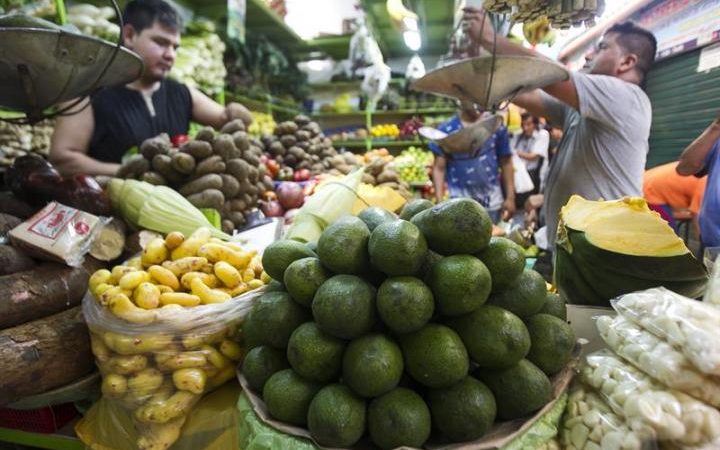Producers of Peru’s “superfoods,” native and highly nutritious products such as quinoa, Hass avocados and blueberries, have emerged as big winners in the first five years of the Andean nation’s free-trade agreement with the European Union.
To mark the anniversary of the EU’s trade accord with Colombia and Peru, a delegation of members of the European Parliament (MEPs) visited those countries last week to analyse the implementation of the accord. The MEPs paid a two-day a visit to Lima, following a three-day stay in Colombia, with an intense agenda of contacts and meetings with political and economic authorities and civil society representatives.
Bernd Lange, the head of a delegation from the EP’s Committee on International Trade (INTA) that visited Peru, praised the positive impact of the pact on Peru.
“In terms of goods and services, things are going very well. Peru has a trade surplus, and so we can say that it’s a big beneficiary of these types of accords, if we compare it with others, like (the one) it has, for example, with China,” Lange said on Thursday (15 February).
Last year, trade between Peru and the EU totalled $10 billion, $6 billion of which was Peruvian exports, the 28-member bloc’s ambassador in Peru, Diego Mellado, told EFE. Since March 2013, nearly 39% of Peru’s exports to the EU have been non-traditional, a category that comprises all products and services other than raw materials or hydrocarbons and also includes “superfoods.” Over the past five years, around 2,300 Peruvian companies have begun exporting to the EU.
“Most are small companies that have joined together in cooperatives to export to the European market,” Mellado said.
Those companies include Ecoandino, which exports ancient organic superfoods from Peru’s Andean and Amazon regions to Europe. Thanks to the free-trade agreement, Ecoandino has expanded its reach and now exports its products to 15 European countries.
Some producers, however, say the EU trade deal and other similar accords have been detrimental, with the president of the Peruvian Association of Dairy Farmers (Agalep) lamenting that imported powdered milk now accounts for 40% of domestic milk consumption, up from 14% in 1995.

Although the Peruvian Network for Equitable Globalisation (RedGE), a fair-trade watchdog, says the trade deal has been positive for the country, it joined 30 other Peruvian and European organisations last October in filing a complaint with the European Commission, accusing Peru’s government of non-compliance with its labour and environmental commitments.
The EU’s foreign direct investment in Peru rose 15 percent between 2013 and 2015 to roughly $12 billion.
“In terms of trade, we can say that things are going quite well… It’s clear that trade also has to benefit citizens, and that’s why International Labour Organisation rules must be complied with,” said Lange following a meeting with Peruvian Foreign Minister Cayetana Aljovin on 15 February. “They must be followed so citizens have their share of the benefits of this treaty, and of course so fair competition isn’t undermined.”
Lange also said the trade deal “helps Peru draw closer to” joining the Paris-based Organisation for Economic Co-operation and Development (OECD); Lima has its sights on becoming a full member of the forum in 2021 when the Andean nation celebrates its independence bicentennial.
The OECD “clearly demands a series of structural procedures and measures in terms of labour rights and worker representation,” the German MEP said, adding that those points were included in the EU’s trade accord with Peru and Colombia.
“I think a very important link may exist between free-trade agreements and accession to the OECD,” Lange concluded.
Original source: EURACTIV
Published on 22 February 2018

